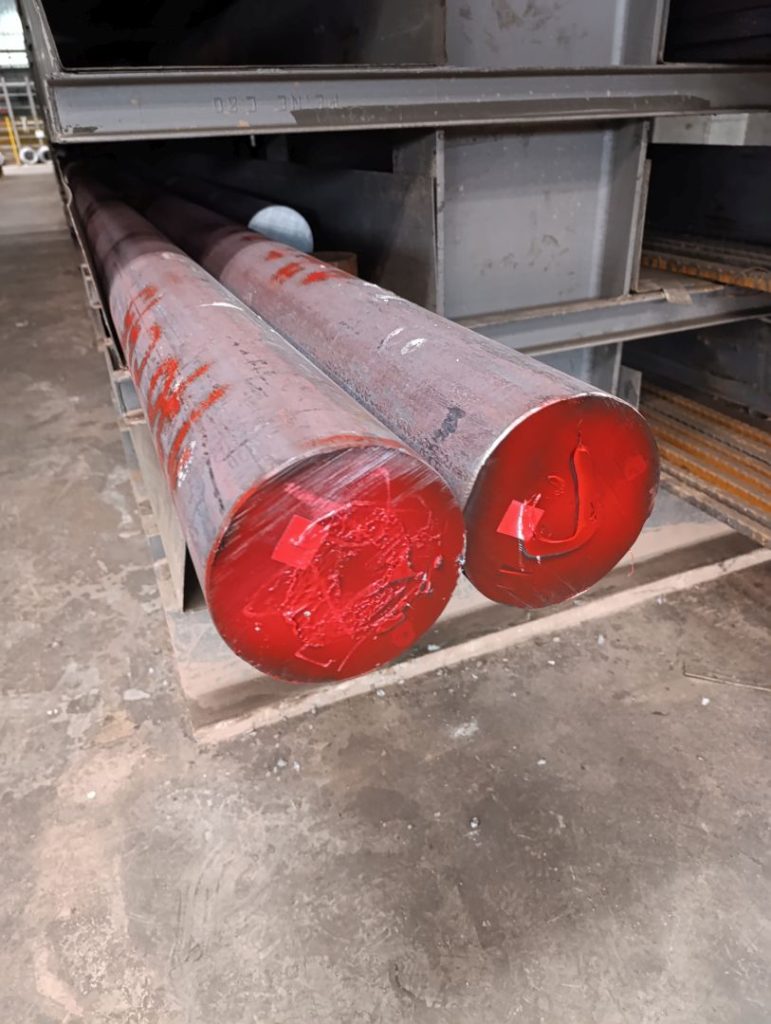Tool steels are noble carbon or alloy steels with a carbon content of 0.6% to 2.06% or alloyed (mainly with Cr, W, V, Mo, Co), and are used to make tools. The basic properties that tool steels must possess are wear resistance and high impact durability. The production (economic) requirements and properties of the tool steels are: the ability to process tools by separating particles, high hardening, high deep-hardening, slight change in dimensions during operation, the possibility of processing, corrosion resistance, the possibility of polishing, cost-effectiveness, etc.
Special steels
Products / Special steels
Structural (carbon) steels
Structural (carbon) steels are used for the manufacture of various structures (cranes, girders), in construction (bridges), mechanical industry (vehicle parts, ship structures, machine parts), petroleum industry, etc. These steels are applied in the raw state (without heat treatment).
Tool steels
Cementing steels
Cementing steels represent a group of steels, which, after processing, by separating the particles, the outer (surface) layer is carburized. After the carburization of the outer layer, quenching is carried out, in order to achieve high wear resistance of the outer layer, and increased toughness of the non-carburized core. Cementing steels before carburization generally contain 0.1-0.2 % C, and after carburization, the outer layer contains 0.8-0.9 % C. The carburization process is called cementation. These steels are used in the mechanical industry (production of gears and other transmission), armament industry (production of weapons), shipbuilding, metal processing, etc.
Steels for automatic machines
Steels for automatic machines are designed to make parts on highly productive automatic machines. Their main characteristic is better workability, compared to other steels. The processing ability of these steels is achieved by means of an altered chemical composition that promotes the formation of inclusions, which allow the formation of brittle and short chips.
Improved steels
Improved steels are obtained by heat treatment, i.e. quenching, to obtain appropriate mechanical and chemical properties. It is especially important and characteristic that improved steels have a high yield point and good strength and toughness in ferrous metallurgy. This has a beneficial effect on the fatigue limit, i.e. such steels do not fatigue quickly, and in addition are highly resistant to dynamic stresses, especially alternating stresses and impacts.
Steels for enhancement
Steels for enhancement can be carbon (non-alloy) and low-alloy, which by heat treatment (quenching and tempering) achieve the appropriate strength properties, but also the required toughness. These steels are most commonly used in the mechanical industry (manufacture of shafts and axles), automotive industry, special industry, shipbuilding, metal processing (manufacture of screws, wedges, levers, etc.).
The main feature of the improved steels is that they are quenched in water from the shaping temperature, and further tempered at a temperature of 680-710 °C, whereby the appropriate strength properties are achieved, but also the required toughness. They have the same, or similar, application as steels for enhancement.

